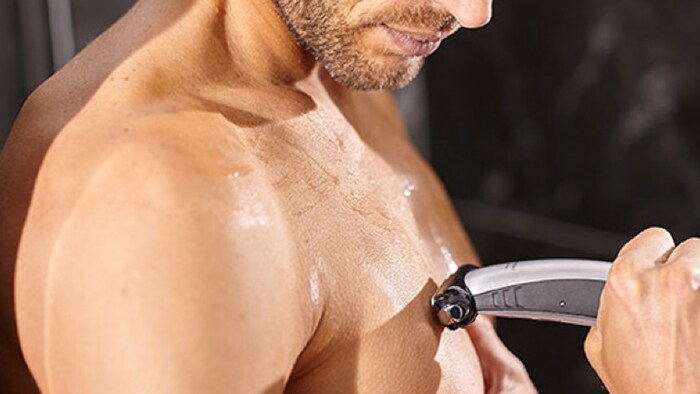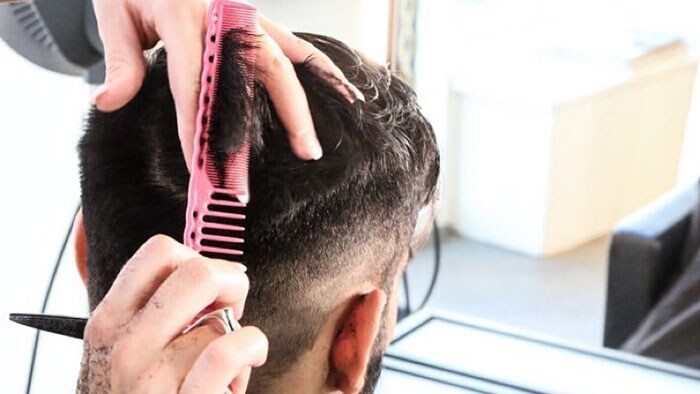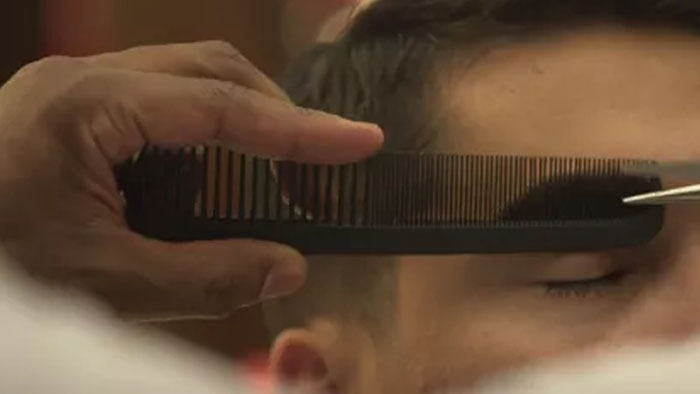You’d have had to be trapped in the Love Island villa all summer with no access to the outside world to have missed the latest movement in self-care. It’s on T-shirts, phone covers, Instagram quotes, street art … I’ve even written an entire book about it. The buzzword? “Kind”. I know what you’re thinking – we’ve been told to be kind to each other for years. Everyone from Aristotle to Princess Diana has extolled its virtues; as Mark Twain said: “Kindness is the language which the deaf can hear and the blind can see.” But the current iteration is different to the previous “pay it forward” variety. The new kindness is about putting yourself first – being “kindful”, in the same way you would be “mindful” in your day-to-day life. Why? Because if you’re not kind to yourself, how will you ever be kind to others? As with any new idea from the wellbeing world, some people have trouble getting on board. And I’ve noticed that kindfulness is a concept men especially can struggle with. After all, for decades guys were told to “man up” and encouraged to repress their feelings. Anything else was unmanly. It left generations unable to articulate their troubles at all. But with our mental health now a headline issue, 2018 feels like the tipping point – the moment when men say: “Enough is enough.” Matt Coyne, author of bestselling parenting guide Dummy: The Comedy and Chaos of Real-life Parenting, agrees. “Growing up, I was left in no doubt that a ‘real man’ should be tough, uncompromising and too busy eating red meat and reverse-parking efficiently to have feelings. “I’m not what anyone would describe as a ‘man’s man’. I like musicals, I struggle to grow a beard and I once cried watching Pitch Perfect 2. Being a stay-at-home dad isn’t for everyone, but I can definitely say that I feel fulfilled by it.” Coyne is an advocate of kindfulness in his own unique way. “I’m not someone who goes in for that whole standing in front of a mirror and shouting: ‘I’m a tiger!’” he says. “I’d feel like a bit of an idiot. But I constantly ask myself: ‘What’s the worst that could happen?’ “Ditching parenting guilt has been a huge part of becoming a happier dad. It took me a while to work out that I will always be a bad parent – according to somebody. The greatest kindness parents can do themselves is realise that the only opinion that matters is your kid’s. As long as I’m the greatest dad to one person – my son – that’s good enough.” But while Coyne has happily shrugged off the stereotypes of what it means “to be a man”, many others are still struggling under the weight of expectation and the pressure that comes with attempting to be a doting dad, ambitious career man, loyal partner or perfect provider. The ManKind Project was formed in 1998 so men could get together and talk about the fact that society’s expectations of men are “based on power, control and invincibility”. It sets out a clear mission statement: to allow a man to live with confidence, and purpose, and create a life without fear for himself and those around him. In short – to learn to be kind to themselves each day. It’s a service that’s desperately needed. A recent study estimates that 12.5% of the male population suffers from one of the common mental health disorders and yet men are much less likely to access psychological therapies than women. While there has been a significant opening up in terms of conversations around mental health, many men are still reluctant to speak out when they’re struggling. Experts agree that a seemingly small thing, such as altering a negative internal monologue, can have a significant impact. Steve Clarke is a leading psychotherapist at Priory’s Life Works residential rehabilitation centre in Woking, Surrey. He says that negative self-talk can be so ingrained that it makes men feel – perversely – as though they’re on the right track. He explains: “Many men believe they can identify a self-critical voice as that of a once-critical parent, partner or coach who used criticism as a way to motivate or punish. “An increase in male body dysmorphia, poor physical health due to neglect among some, poor work-life balance and financial woes can all lead to a negative self-image,” Clarke adds. “It’s important to take a step back and recognise your value. Ask some people you respect to describe your best qualities. It’s good to be reminded of our strengths, and it helps to improve self-esteem.” According to Clarke, other acts of kindfulness that can go a long way to achieving that much-craved sense of contentment include taking 10 minutes out of the day to spend by yourself. “Use this time to remind yourself that you have the simple things in life – food in your belly, a roof over your head, money in your pocket, running water, love, compassion and good health. You’ll feel rich beyond all measure,” he says. So what other kindful acts can you bring into your life? How about a rethink of your relationship with your mobile phone? Even workaholic Simon Cowell has gone phone-free. “I literally have not been on my phone for 10 months,” the music mogul revealed this year. “I became more aware of the people around me and way more focused. It has been so good for my mental health. It really is good for you and it has absolutely made me happier.” Psychotherapist Padraig O’Morain, who has also written a book on kindfulness, believes that this form of self-care can transform anyone’s life for the better. “People who practise self-compassion are good at taking on challenges … it is often our own condemnation that we most fear,” he says. But how easy is it to apply kindfulness to your own life? Writer Chris Brock was experiencing crippling anxiety when he had a self-care epiphany. “I suffered with anxiety to the point where my head was constantly buzzing with negative thoughts: that I was a failure, I wasn’t good enough and maybe I’d be better off dead,” says Brock, who has just written a book about his experiences, Do the Thing, Have the Power: Overcome Self-Doubt and Build a Life You Love. “Someone said to me: ‘Thoughts aren’t fact’, but I struggled with this for about six months,” says Brock. “One day, those anxious voices were beating me up and I said out loud: ‘Shut up!’ It was at that moment that I realised that our thoughts are not us. And that led me on a road to meditation, mindfulness, and taking ownership of my life.” Brock put a programme of self-care into practice: drinking more water, starting a gratitude journal to focus on the positive in his life, and avoiding reading too much negative news. “This is a lifestyle change and something you need to practise every day,” he says. “I soon noticed the change in myself and became aware of how good I could feel.” “Negativity is just really hard work and energy-sapping so I really like the idea of kindfulness as a kind of counterbalance,” Coyne adds. “I really think there’s something to it for men.” Caroline Millington is author of Kindfulness (£10, Head of Zeus) out on 4 October 2018 Photography by Cavan Images.
Reprinted with permission from The Guardian.
-
![Where should guys shave?]()
Where should guys shave?
Read the article -
![How to avoid a bad haircut]()
How to avoid a bad haircut
Read the article -
![Eyebrows: there should be two not one]()
Eyebrows: there should be two not one
Read the article





